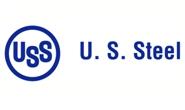Market Segment

August 20, 2015
Canadian Judge Lets Objections to US Steel Debt Remain in Proceedings
Written by Sandy Williams
US Steel Corp. lost its bid to keep objections to its debt claims out of the CCAA proceedings for US Steel Canada. US Steel claims it is owed $2.2 billion by USSC, an amount that the United Steelworkers, the province, and former Stelco president Bob Milbourne question.
Justice Herman Wilton-Siegel in his decision wrote that there were “good reasons” for keeping objections in the restructuring proceedings including improving the chance to find a solution in that will keep the Canadian mills operating.
According to the USW, US Steel operated US Steel Canada in a way that caused it to “significantly underperform, thereby incurring substantial losses rather than achieving profitability and requiring it to incur significant debt.” “In essence,” wrote Wilton-Siegel, “the USW argues that USSC would not have needed to commence these CCAA proceedings but for the decisions taken by USS regarding the operations of USSC.”
Milbourne argued that, that “in its management of the former assets of Stelco as part of its North American flat-rolled group of steel plants, USS took actions to idle the blast furnaces and steelmaking units of USSC, which resulted in significant losses to USSC, while USS continued to supply the former customer base of USSC from its steel plants in the United States.”
According to the objectors, some of US Steel’s claim is not really debt but equity investment in the company and, therefore, should be at the bottom of the creditors list.
By reducing the amount owed to US Steel, the USW hopes to increase the cash available for the underfunded pension plans of 14,000 retirees. The plans are underfunded by more than $830 million.
Objectors also worry that if the $2.2 billion claim is left to stand, US Steel will use it in a credit bid to buy Lake Erie Works, canceling some of the debt to pay for the transaction. Reducing some of the debt would also reduce US Steel’s leverage in a restructuring plan for the Canadian mills.
A previous attempt by the objectors to use a legal doctrine called “equitable subordination” to reduce US Steel’s claims failed. Although the procedure can be used to bottom-list debt when a company has acted unfairly, it cannot be used in a CCCA protection case.







